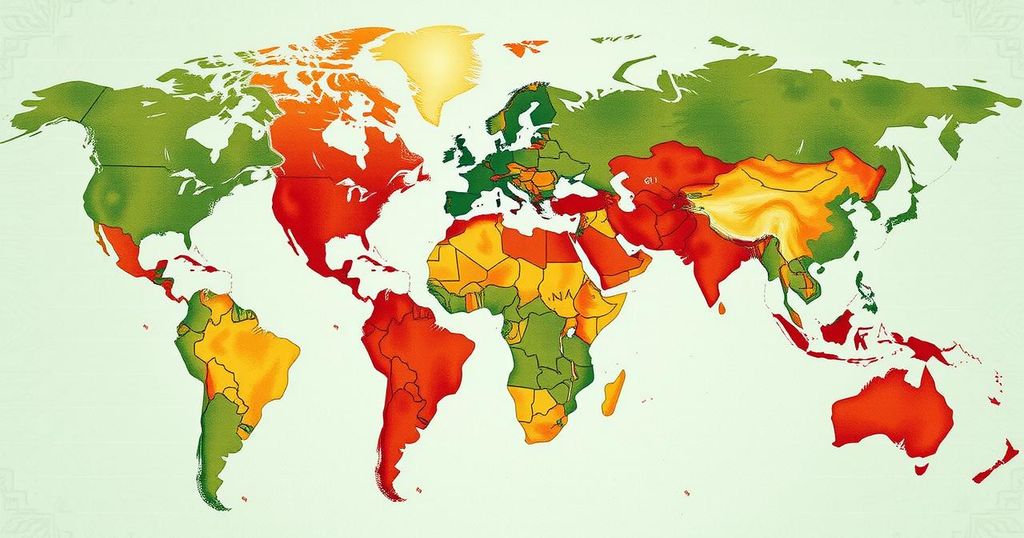A coalition of climate-vulnerable nations is advocating for reforms in the credit rating system to include resilience efforts, as current ratings primarily reflect economic threats from climate change. This change is crucial for countries such as Cuba and the Maldives, facing significant risks due to climate impacts and currently receiving undervalued ratings. The proposed revisions aim to create equitable evaluations and unlock investment opportunities tied to climate resilience.
A coalition of nations vulnerable to climate change is advocating for modifications to the credit rating system to incorporate measures of climate resilience. This issue was prominently discussed during a recent UN assembly in New York, highlighting the limitations of existing credit ratings from agencies such as Moody’s and S&P Global, which primarily focus on the economic threats posed by climate change while disregarding resilience initiatives. Countries like Cuba and the Maldives, which are significantly affected by climate issues, frequently receive sub-investment or ‘junk’ ratings due to this oversight. These inadequate ratings hinder their ability to attract essential investments necessary for climate adaptation and mitigation. The reform advocates call for a credit rating approach that equally weighs both risks and proactive resilience measures. Additionally, an emerging African ratings agency may enhance equitable assessments in this space.
From a market perspective, a revised rating framework could reveal new investment opportunities targeting climate-related challenges. By undervaluing the efforts made by vulnerable nations in enhancing their climate resilience, the current system leads to overlooked investment prospects in regions critical to global sustainability. Thus, incorporating climate resilience into credit ratings is not merely an administrative change; it represents a significant shift towards creating a more equitable financial environment.
In summary, the proposed reforms to credit ratings aim to provide a more balanced evaluation of climate-vulnerable nations, recognizing their resilience efforts alongside the risks posed by climate change. This change could foster a fairer financial landscape that empowers developing nations, aligns investments with sustainability goals, and reshapes international funding policies to address the urgent challenges posed by climate change.
The article focuses on the necessity for a transformation in the credit rating system to better reflect the actions taken by climate-vulnerable nations in enhancing their resilience to climate change. Current credit ratings predominantly emphasize economic risks associated with climate change without acknowledging the crucial adaptive strategies implemented by these nations. The call for reform is underscored at a UN assembly, highlighting the impact such changes could have on attracting investment and fostering global sustainability.
The push for credit rating reforms by climate-vulnerable nations underscores the need to balance risk assessments with recognition of resilience initiatives. Such changes could provide these countries with improved access to investments and reshape the financial landscape to prioritize sustainability and fairness in global finance. A more comprehensive rating system has the potential to facilitate crucial funding and support for nations most affected by climate impacts, aligning economic interests with the imperative of climate action.
Original Source: finimize.com






